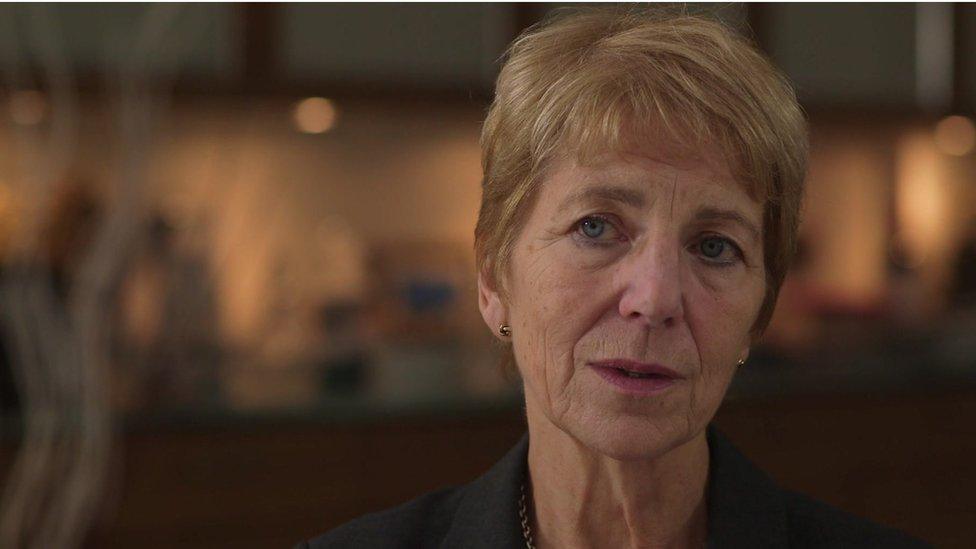Shaken baby syndrome cases 'tip of the iceberg'
- Published
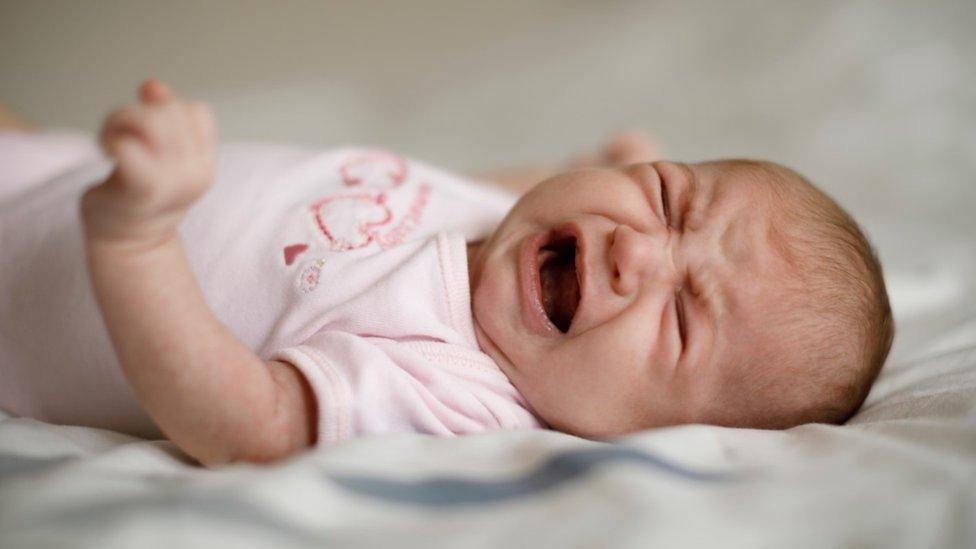
Research has shown crying is the most likely trigger for shaking a baby
More than 220 infants in the UK were killed or injured as a result of being shaken in the past decade, analysis of NSPCC figures has found.
Serious case reviews were carried out on 1,253 children, with nearly one in six of those reports concluding the youngster had suffered a brain injury.
Child protection expert Dr Suzanne Smith said she believed that number was "the tip of the iceberg".
She is heading a scheme in Yorkshire to help parents avoid losing control.
Dr Smith, a former safeguarding nurse in Leeds who has founded the programme, said: "I've seen the devastating impact of shaking babies in hospitals - where babies have died or suffered extremely severe disabilities and we need to do more to prevent it."

'Injuries like high-speed crash'
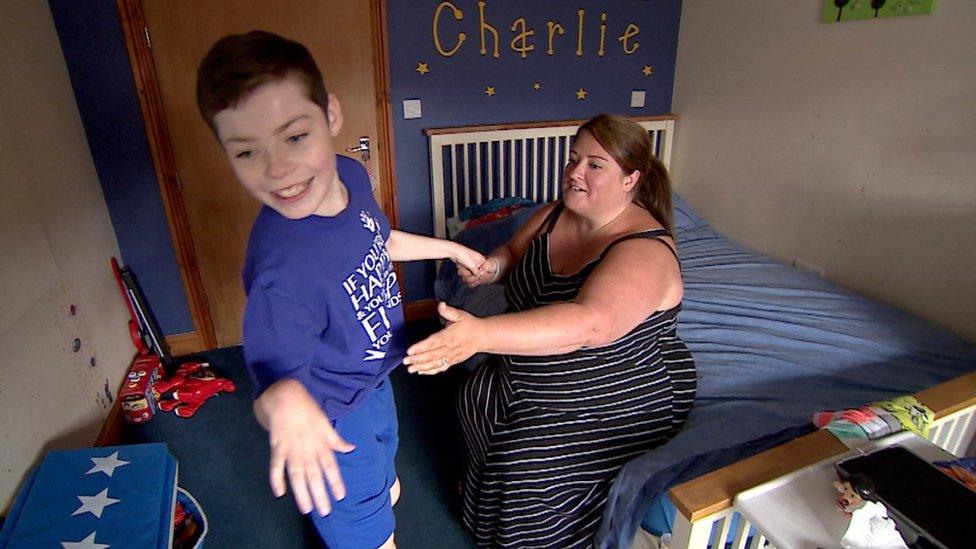
Joanne Peacock said she had grieved for the life her son Charlie should have had
Joanne Peacock's son Charlie was left with cerebral palsy and blind after he was shaken by his father at their home in Huddersfield when he was 16 weeks old.
She said: "I came out of the shower to find Charlie grey, lifeless, not breathing, in his father's arms with no explanation.
"We didn't think he was even going to make it to the hospital.
"They told us to prepare for the worst, that his injuries were equivalent to a high speed car accident because he'd been shaken that violently."
Her ex-partner Paul Sykes was jailed for four years in 2009 after admitting causing grievous bodily harm.
She said Charlie, now 12, had grown into a "fantastic boy" who brought joy to the family's lives but that he had restricted movement and would need life-long care.
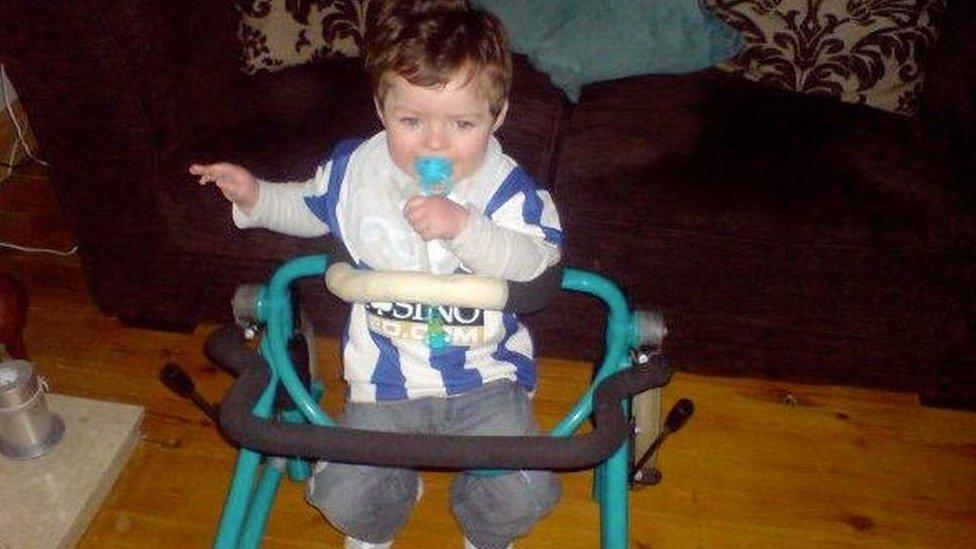
Charlie was shaken so hard doctors did not think he would survive
Mrs Peacock now helps raise awareness about the consequences of infant shaking.
"The most important thing for me out of what happened to Charlie is reducing the amount of babies this happens to," she said.

BBC analysis found out of 1,253 serious case reviews published on the NSPCC's website from 2008 to 2018, 229 of those cases involved a child being shaken - often referred to as shaken baby syndrome.
A serious case review would be triggered when a child had been abused or neglected, resulting in harm or death, and there was concern about the way an authority or person had safeguarded the child.
Because the government has not kept official figures on the number of cases of injury to babies through shaking, experts believed the rate was likely to be higher.
Research has shown crying to be the most likely trigger for shaken baby syndrome, a condition medically referred to as abusive head trauma (AHT).
Helen Westerman, national safeguarding lead at the NSPCC, said: "We don't know the full scale of the problem.
"We know that many parents that do shake their baby don't do it intentionally, are doing it in the spur of the moment when something has just broken or gone wrong, and most parents want to look like they're coping."
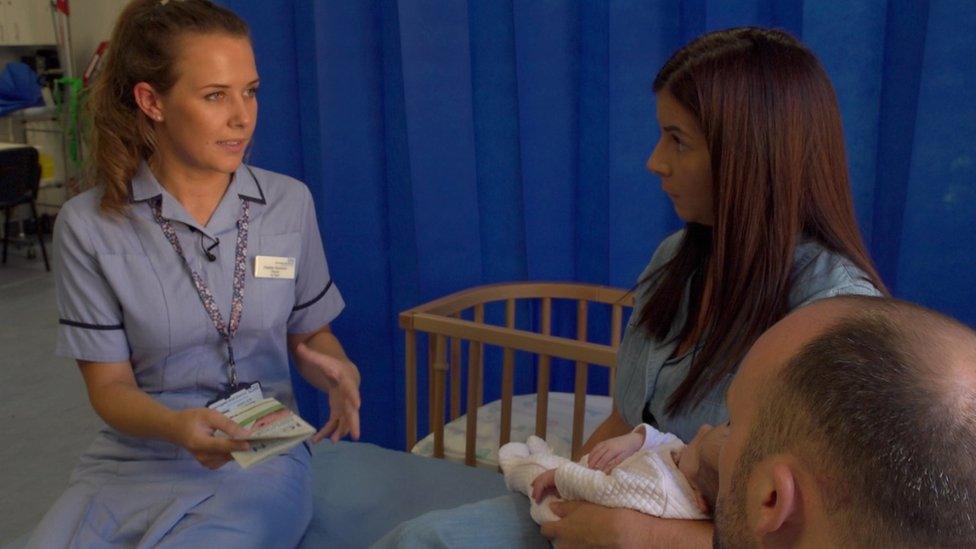
The ICON campaign means parents are made aware of the dangers of shaking a baby both before and after the birth
John McMullan, consultant paediatric neurosurgeon at Sheffield Children's Hospital, said shaking a baby caused brain injuries similar to those in boxing.
But he said: "In boxing the incidences of the head blows are relatively infrequent and so that damage is taking place over, typically, years.
"Whereas with an infant shaking, the damage is occurring in seconds."
You may also be interested in:
Dr Smith's campaign, called ICON: Babies Cry, You Can Cope, has already been offered by some health trusts across the country but will be introduced in York from November.
It is a programme of interventions and awareness delivered at various stages before and after a baby's birth, aimed to help parents and carers cope with crying.
"Not a lot of parents realise that it's normal for babies to increase their crying over their early life," she said.
"They feel quite disempowered and guilty that they can't stop it."

'Sliver of rational thought'
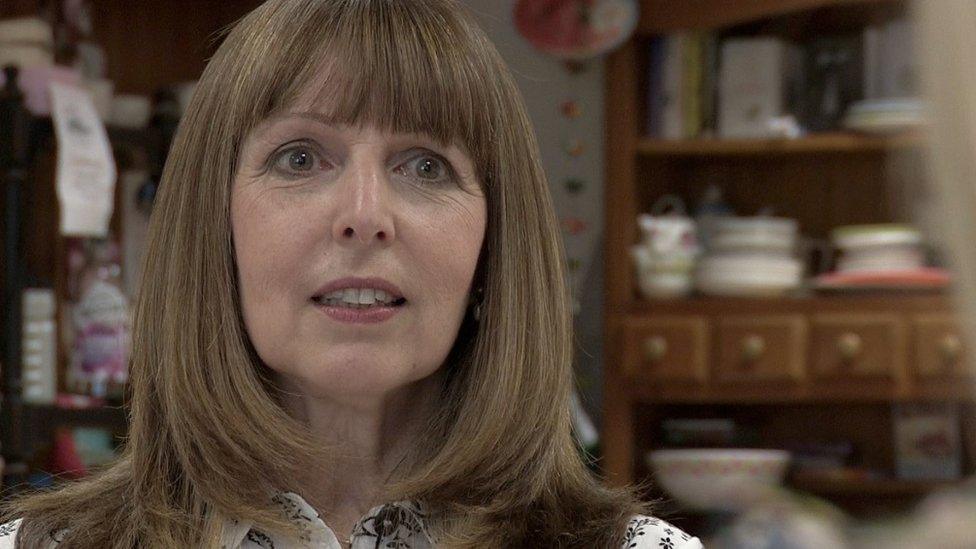
Elaine Hanzak said mothers felt guilty and ashamed about admitting they needed help
Elaine Hanzak remembered how, on the day she lost control, in a "lightning flash" she changed from being happy to all of a sudden having an urge to harm her baby boy.
"I honestly felt I could quite easily smash his head against the wall, shake him, throw him over the banister. I just felt he had ruined my life," she recalled.
At that point, Ms Hanzak had been diagnosed with post-natal depression and although she was receiving medication and support, she was still putting a "mask on" and pretending everything was fine.
She described how a "sliver of rational thought" kicked in and she put her baby safely back in his cot before walking away and seeking help.
Ms Hanzak said her traumatic childbirth, sleep deprivation and the guilt she felt at being depressed led her to the brink of despair.
"I was used to life with ticks in the boxes," she said. "I had everything. A nice house, a nice husband, a good career.
"It was a real wake up call for me that the biggest thing I ever wanted in life, which was to be a mum, was ultimately appearing to be what could be my biggest downfall."

Campaigner Dr Smith said: "We have a really good health service but that bit about crying often passes parents by and isn't focused on by professionals.
"In America and Canada they have programmes that reduce the (level) of abusive head trauma, but here we weren't doing anything and for me that needed to change.
"Our message is really simple. It's about saying infant crying is normal, it will stop and it's OK to walk away for a few minutes as long as your baby is safe."
If you or someone you know is struggling with issues raised by this story, support can be found through BBC Action Line.
Inside Out (Yorkshire and Lincolnshire) examines the issue of shaken baby syndrome on BBC One at 19:30 BST on Monday 7 October and can also be seen afterwards on the iPlayer.
- Published26 May 2016
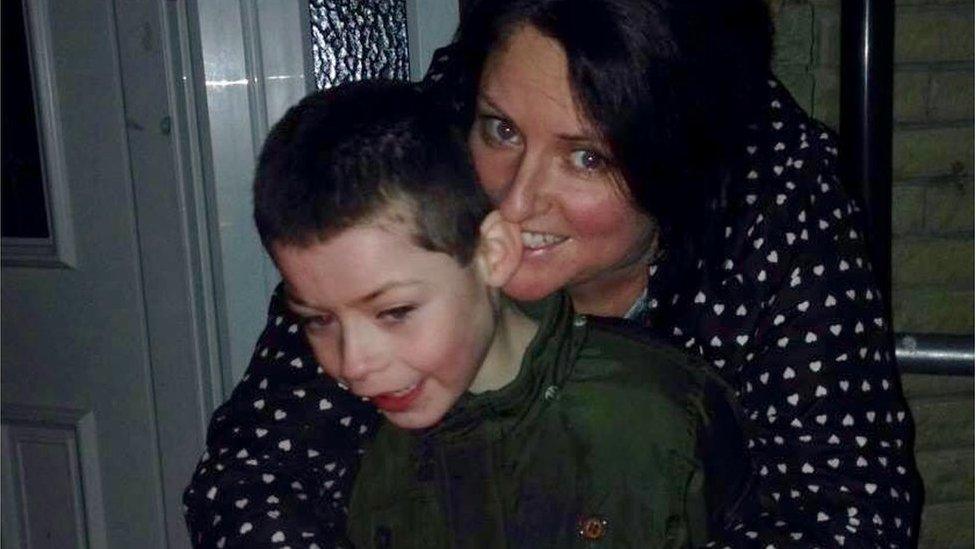
- Published21 March 2016
